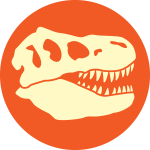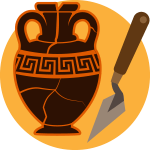GEORGE AMATO: My name is George Amato, and my title here at the museum is the Director of the Institute for Comparative Genomics.
What I try to do is to learn about the threats to endangered species. But I do this in a very interesting way. I try to look at their DNA.
And we can do that in many different ways, often without actually handling the animals, from a feather or just some fur. And we can actually look at their whole genome, if we're interested in. And this gives us information that's difficult to get from just trying to watch the animals directly.
GEORGE AMATO: One of the things that I most enjoy about my work as a scientist is really finding out something that no one ever knew before. It's sort of that Eureka moment, that sense of discovery that you're learning something that was previously unknown. And that's just extraordinarily exciting.
It's been a very exciting time in history to use genetics and molecular biology to understand living things. It's what it has allowed us to be able to do things like look for genes that are associated with diseases that affect people. But it also allows us to think about how to make new and improved agricultural products and crops that could help feed the world as the population grows. And in just so many different ways, it's almost given us an opportunity to sort of decode really what is the blueprint for life. It's a very exciting time.
GEORGE AMATO: I think my favorite place in the museum is the Akeley Hall of African Mammals. And I think that the reason for that is when I was a young child, I would come into that hall. I never really had much of an opportunity to travel when I was growing up and I could lose myself in this world of wonderful animals and environments. And imagine what it might be like to walk along an African savannah or through a tropical rain forest.
Now that I've had an opportunity through my own work to actually travel to all of those places, it's just wonderful to go back and remember how excited I was as a child and to know what my experience as a scientist have now allowed me to do.
GEORGE AMATO: I think I always wanted to be a biologist, at least, I can trace it back quite a long time.
When I was 10 years old, I wrote a letter to Louis Leakey who was a famous anthropologist back when I was a child who was doing work in Tanzania and Olduvai Gorge. And I wrote him a letter and I made some drawings for him of what I imagined it would be like there. And my dad helped me and we packaged all of this up into an envelope and sent it off to Dr. Louis Leakey, Nairobi, Kenya, that was the only address we had.
And about three months later, he sent me a letter back saying how much he liked the drawings and how he hoped one day I would come and work with him in Africa. And that letter is sitting above my desk right now, and I think about it often. So at least I can trace it back to then.
GEORGE AMATO: If I wasn't a scientist, I think I'd be a school teacher. My dad taught public school and he was one of those of Mr. Holland's Opus kind of school teacher. And even as a young child, I could see what an influence he had on people's lives. And so if I wasn't actually doing the science, the opportunity to teach science to students would be a nice thing to do as well.
GEORGE AMATO: My advice for anyone who's interested in becoming a scientist would be to stay interested and focused on the things that you find interesting. There are a lot of distractions out there, but maintaining your interests and your enthusiasm for the things that are of interest to you, whether it's in biology, or astronomy, or really any of the sciences.
I would say read a lot, there's so much good information out there. And watch a lot of television which, again, is maybe not the advice people expect to get, but there are so many good programs on the television about science. And, of course, on the internet.
And work hard in school, especially in math and science. And hopefully that will prepare you to have an opportunity to become a scientist, if that's what you decide to do in the future.
GEORGE AMATO: I wish you could spend a week with us in our laboratory. Everyone is having a great time. The students are probably some of the most cool people you'll ever meet. They do exciting and wonderful things. And I think that being able to see that, would only encourage people to be interested in science.
Very few people wake up in the morning and go off to do something that they just really love to do. Most scientists that I know, even if they didn't have to earn a living, would get up and do exactly the same thing that they do to earn a living. And that's really wonderful, that sense of discovery and excitement is just very rare.
For many people, you can see just how relevant science is to all aspects of our life. We can see it from everything, again, from our entertainment from programs like "CSI" where they're using DNA-based technologies to solve crimes to, again, better understanding the threats from something like bird flu or other emerging diseases.
And the more that you know about science, the better you can make informed decisions about when you vote, or about policies, or even about decisions that you make in your daily life about what you eat and what you choose to do. Science only helps inform people to make those kinds of decisions.
GEORGE AMATO: I was thinking back to what were my favorite books when I was a child and, of course, that was a very long time ago. I used to read a lot of these books that were about animals, that's no big surprise. There was a "TIME-LIFE" series of books. "TIME-LIFE Dinosaurs," "TIME-LIFE Fossil Humans."
When I think about other kinds of things that I read, I liked those young, adventure novels for young people like "The Hardy Boys" and "Nancy Drew," probably read more "Nancy Drew" than "The Hardy Boys." Enjoyed that and very quickly then, moved on to reading novels and other kinds of things.
GEORGE AMATO: The funny thing is, I don't really like ice cream. I'd much rather have a piece of chocolate. When I do eat ice cream, mint chocolate chip was the closest to an ice cream that I liked because I think it reminded me of chocolate.






 Biodiversity
Biodiversity
 Brain
Brain
 Genetics
Genetics
 Marine BiOLogy
Marine BiOLogy
 MicrobiOLogy
MicrobiOLogy
 PaleontOLogy
PaleontOLogy
 ZoOLogy
ZoOLogy
 AnthropOLogy
AnthropOLogy
 ArchaeOLogy
ArchaeOLogy
 Astronomy
Astronomy
 Climate Change
Climate Change
 Earth
Earth
 Physics
Physics
 Water
Water
